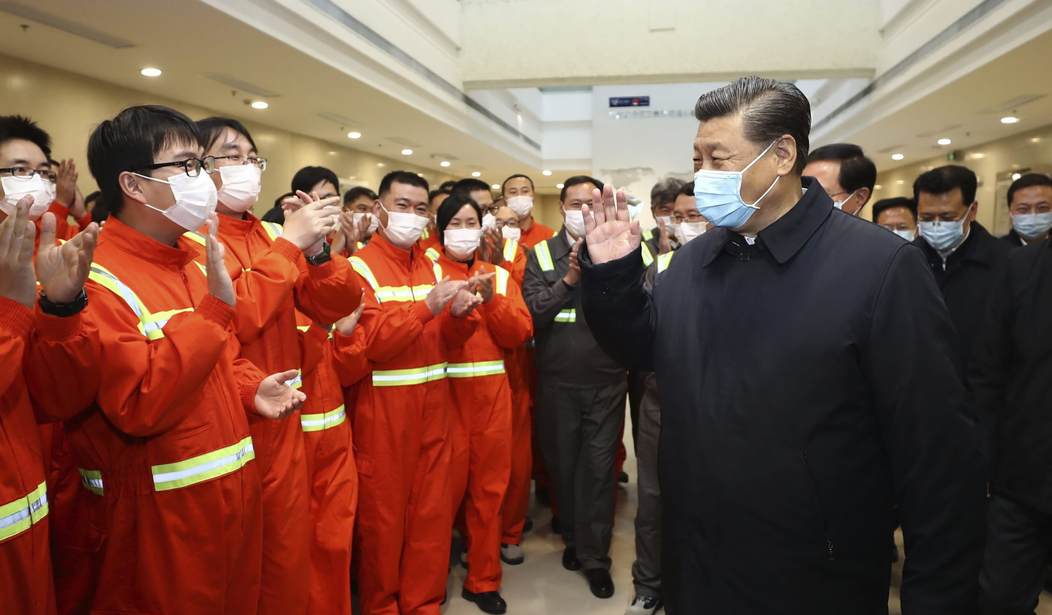Think of the global economy as a fine Swiss timepiece. Expertly-made gears spinning frictionlessly on jeweled bearings, controlling multiple hands and a variety of complications, all to deliver immediate and easily-viewed results to its wearer.
The smartphone in your pocket is a similar marvel on a larger and even more complicated scale. Resources from Africa, South America, and elsewhere get converted into LCD or OLED screens in South Korea, accelerometers and gyroscopes in Europe, cameras in Japan, computer chips in Taiwan, Japan, and the United States, specialty glass in North Carolina, and milled aluminum cases in China, where the final product is assembled. From there the phones are shipped around the world on jet aircraft typically manufactured by Boeing in the United States or Airbus in Europe. All of this runs on energy drilled or fracked and then piped or shipped from the Middle East, Russia, and the Americas. In each case, the necessary inputs come from the most efficient source, to be turned into outputs by the most efficient manufacturer.
Like a Swiss watch, it’s a marvel of efficiency — right up until it isn’t.
Throw a little sand in the gears of a Swiss watch, and the whole thing freezes up. The global supply chains got a big dose of sand in the form of the Wuhan coronavirus.
A small example of just that comes from novelist Mike Massa on Facebook last week. Massa took a look at how an easy-to-make (and locally-made) product like yeast nevertheless fell victim to the collapse of the global supply chain. The Virus Insanity Shut-In Time has a lot more people baking at home, if only to kill time, so much so that Fleischmann’s reported a 600% year-over-year increase in yeast demand for February and March.
Massa wrote:
Making yeast is dirt simple (almost.) Therefore, manufacturing the actual yeast, even at 6x normal for this time of year is no problem. Packaging? Yeah, that’s a problem. For example (drawn from recent news), Fleischmann’s yeast is packaged using jars and paper envelopes sourced from one, count’em, one factory. In India. Which is closed.
Since Fleishmann’s can’t easily ramp up an alternative (though I’m sure that they’re working hard on that) to this single point of failure in their supply chain, they can’t sell us dry yeast.
I’m sure Fleishmann’s got quite a deal on their jars and envelopes, but at what opportunity cost? Demand has skyrocketed and Fleishmann’s should be raking in the money. Instead, they’re wasting time and losing sales trying to find a new packager to replace the one — one! — they relied on literally half a world away.
That’s not to say we’ve got to batten down the national hatches and go Full Autarky. The United States was a global trading nation before it was even a nation, and that’s not going to change. But there are at least two lessons we need to take to heart — and make real in policy — as rapidly as possible.
They are:
• Offshoring manufacturing jobs in exchange for cheap consumer goods was not a good bargain.
• Allowing a bad actor like the mainland People’s Republic of China sit at the epicenter of the global supply chains is a deadly risk the world can’t afford to take a second time.
Even now, with its infected hand caught in the world’s cookie jar, Beijing and their bought-and-paid-for global allies are in full-on Denial Mode.
We did … when you announced that there was no evidence of community spread, even though Taiwan warned you about it two weeks prior. https://t.co/9DFHg9Vh3t
— Ed Morrissey (@EdMorrissey) April 27, 2020
The PRC’s thugs are ramping up the bullying, too, telling the Australian government that they’ll boycott Aussie imports if the government there “continues to push for an inquiry into the origin of the global coronavirus outbreak.” Our own Jim Treacher noted on Monday that “China is pulling a neat trick here.”
1. Unleash deadly plague on the world
2. Lie about it, destroy evidence, and silence whistleblowers
3. Threaten to boycott anybody who correctly blames you for hundreds of thousands of deaths and global economic ruin
I would just add that Apple already has iPhones assembled outside of mainland China, in India, soon in Brazil, and there’s no reason the final assembly of a few tens of millions of units couldn’t happen in Argentina, in Vietnam, and even in Texas, too.
I use the iPhone as an example because it’s popular and like any other brand of smartphone sits near the top of the complexity scale for consumer items. From iPhones to relatively simple things like N95 masks and vital medications, a hostile power with imperial ambitions and zero regard for life has gotten a dangerous grip on our supply chains.
Will consumer goods get more expensive as we decouple from China? Yes, but given the corruption baked into the PRC’s manufacturing base, they’ll probably get to be higher-quality, too.
All that cash has allowed Beijing to turn everything from the once-respected World Health Organization to local American universities into communist mouthpieces. If we have to disengage from global organizations and send every Chinese university student back to the mainland for as long as it remains Communist, then so be it. Decoupling won’t be easy and it won’t come cheap, but we can’t afford another pandemic to emerge from Communist China allowing Xi and his minions to throw sand in the gears of the global economy.
Editor’s Note: Want to support PJ Media so we can keep telling the truth about China and the virus they unleashed on the world? Join PJ Media VIP and use the promo code WUHAN to get 25% off your VIP membership.










